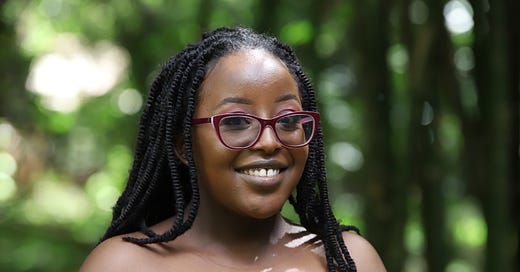Cohort 1 alumnus Silvia Muthangya shares pro tips: Mastering DevOps, gold fellowship and life beyond the program
We caught up with Silvia Muthangya from cohort 1 for a quick catchup on her journey so far. Silvia is currently working as a DevOps Engineer and she is also one of our amazing gold fellows.
You were part of cohort 1 and amongst the pioneer cohorts of the #ALX_SE program, what was the application process like back then?
My name is Silvia Muthangya and I was part of the #ALX_SE cohort 1. The initial application process involved sharing a link and filling in details. The current application process I would say is more beginner friendlier focusing more on mindset and behavior questions. When I joined cohort 1, having some coding knowledge was crucial because you were required to create a website within a week as part of the application process.
Entering the field, especially for young women, is often seen as challenging. How was your overall experience in the program?
Entering ALX software engineering while already in university had its challenges, but it was mostly enjoyable. Juggling between university and the program required careful handling. Balancing both was facilitated by having a supportive community and leveraging available resources. Collaboration was a significant aspect of the program, and finding partners for projects was crucial. Building a trusted network was essential to overcome challenges and complete projects successfully. However, I think I was also lucky because my undergraduate course and the #ALX_SE program mirrored each other which made it easy for me to balance them. The degree was a little more theoretical while the #ALX_SE program is very hands-on hence they complemented each other.
Speaking of projects, which one was your favorite, and which one posed the most significant challenge?
The Airbnb clone project was the most challenging due to its specialization requirements. Most projects involved finding partners, emphasizing the program's community-based nature. I think the aspect of attracting good and collaborative partners was a challenge but I overcame it by building a trusted circle around me. You have to be very intentional about building a support system of peers around you while in the program because it makes the journey very light and enjoyable.
I really enjoyed working on the other projects including the specialization portfolio project. At the time I joined the program, you had the option to finish the program in nine months or proceed to specialization and I chose to proceed. I, therefore, again came together with some of my trusted peers to deliberate on what to build for the portfolio project. Deciding on a specialization involved an ideation process where we considered various ideas based on their feasibility and requirement and settled on the best one by unanimous decision.
After graduating, what were your next steps? Did you automatically consider the Gold Fellowship, or did it come to your attention later?
At the time I graduated, the gold fellowship had not yet come into existence at least publicly to my knowledge. I got straight into applying for roles and after some rejections, I finally landed a role as a DevOps Engineer. My job application process involved applying broadly for roles that I felt fit my experience and skills. My current role involves handling both development and operations tasks. A typical day includes problem-solving, coding, and continuous learning.
I later received an email detailing what the gold fellowship is all about together with an invitation to apply. The career support aspects of it such as exclusive events, access to a working space and a pathfinder really captivated me. The pathfinder pack was especially fascinating in terms of having a personal career advocate who finds opportunities and even takes on salary negotiations for you to ensure you get a good deal. I applied and I was accepted and so far it has been a great ride.
For those currently in the program or about to graduate, what are your final words of wisdom regarding job expectations and the post-program journey?
I would advise them not to obsess so much about what comes post-program but focus on building value. It is okay to think about the post-program journey but it is more crucial to focus on building your skills and your portfolio while in the program. This means being very diligent in undertaking tasks as well as jumping on various projects that you can then showcase on your CV as proof of ability to deliver on the job. This is what I mean by building your value and once your value is solid, everything else will fall into place post-program.
Are you team VI or team Emacs?
Team VI all the way 🙂
To stay in touch with Silvia, contact her on LinkedIn, Twitter, and Github.




